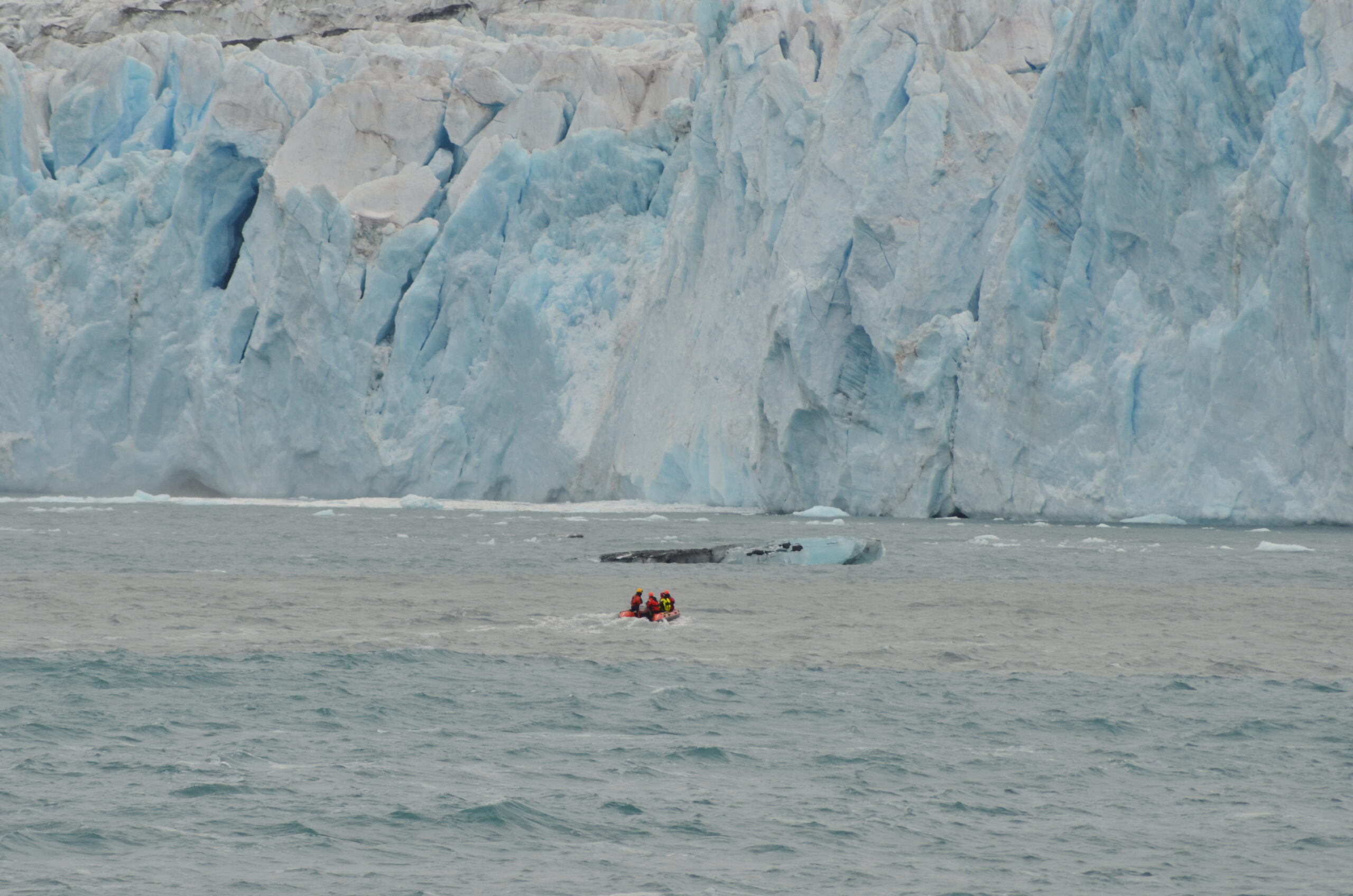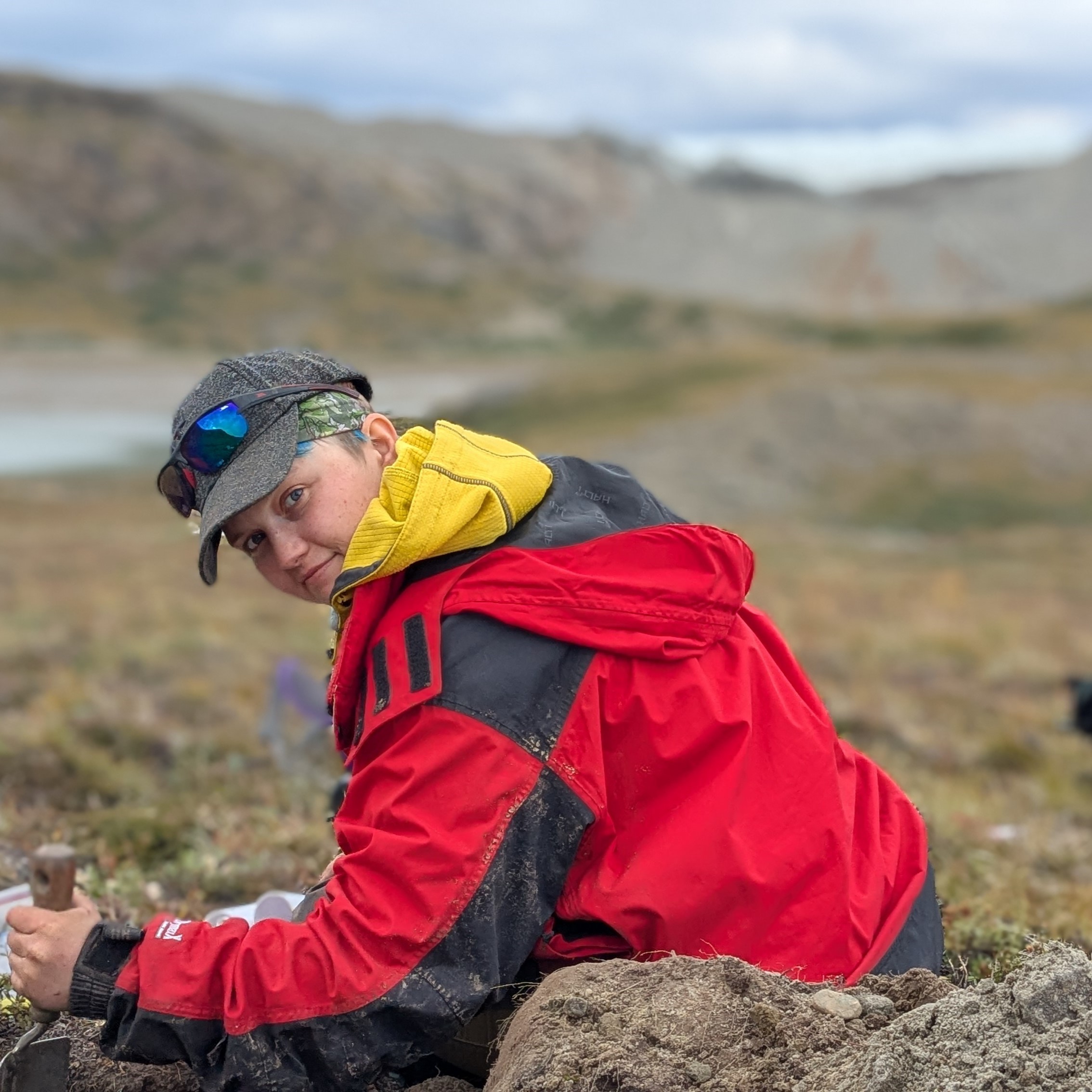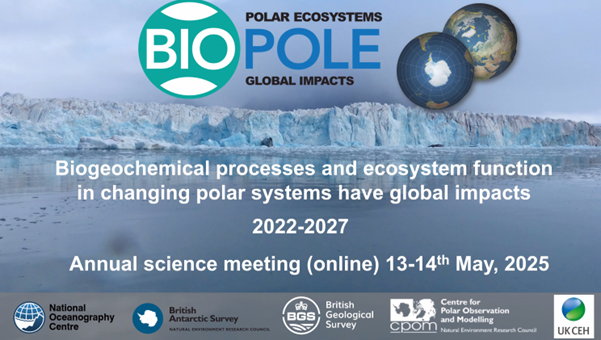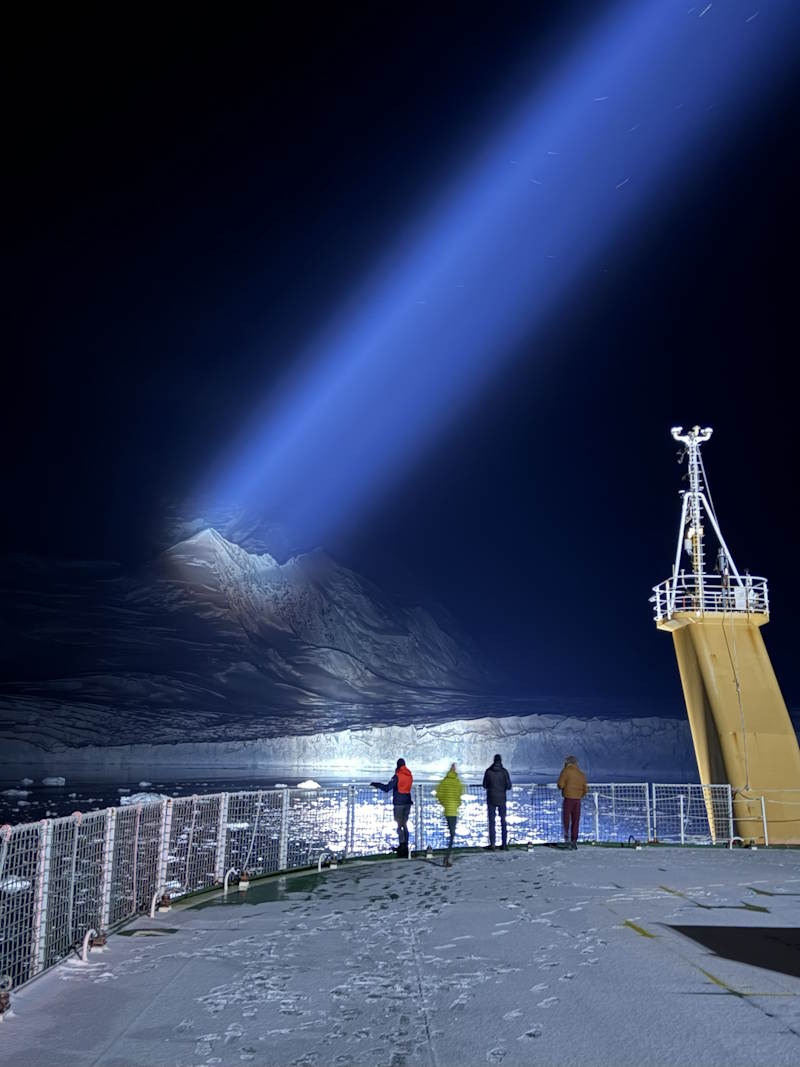
BIOPOLE
Biogeochemical processes and ecosystem function in changing polar systems and their global impacts
BIOPOLE is an interdisciplinary NERC programme examining biogeochemical processes and ecosystem function in polar ecosystems.
BIOPOLE will address a fundamental aspect of the Earth System – how nutrients in polar waters drive the global carbon cycle and primary productivity. The oceans play a vital role in absorbing atmospheric CO2, mitigating large amounts of manmade carbon emissions. However, this part of the global carbon cycle relies on an adequate supply of nutrients to drive the carbon-absorbing marine biological processes. Much of these nutrients are exported from the polar regions. BIOPOLE will improve our ability to quantify this export and identify its sensitivity to climate change.
About

Funders and participants
BIOPOLE is funded by the Natural Environment Research Council (NERC), part of UK Research and Innovation (UKRI), under the National Capability Science Multi-Centre award scheme (NC-SM2). The scheme is designed to enable a more ambitious, integrated approach to research challenges that require large-scale, long-timeline insights and more than any one National Capability (NC) provider can deliver alone. The scheme aims to bring skill sets and expertise together, to meet national science needs through more coherent and resilient delivery across NC providers and to increase NC science returns by generating new science opportunities that leverage additional benefits via other funding streams.
BIOPOLE is made up of five National Capability providers:
- British Antarctic Survey (BAS)
- National Oceanography Centre (NOC)
- UK Centre for Ecology and Hydrology (UKCEH)
- British Geological Survey (BGS)
- Centre for Polar Observation and Modelling (CPOM)
BIOPOLE started on the 1st April 2022 and will run for 5 years.
Objectives
BIOPOLE will address three major questions:
Q1
What physical, chemical and biological processes modify nutrient balance en route from source to polar ocean ecosystem, and what are their sensitivities to climate change?
Q2
What is the influence of ecosystem processes on nutrient balance and movement of carbon to depth in the polar oceans, and how may these change in the future?
Q3
How may this movement of carbon to depth and the export of nutrients change in the future and what impacts will this have on global ocean fish stocks and the global carbon cycle?
Research Topics
Nutrient inputs and freshwater processes
Work Package 1 (WP1) will assess the nutrient sources of major inputs from land, sea-ice and oceans and provide information on the key transformation processes that determine their eventual inputs to open-ocean ecosystems. This information will be used alongside satellite and historical data (both observational and modelled) and projected changes in inputs, to gain insight into future impacts on supply to marine ecosystems.
Biological processes and ecosystem function
Work Package 2 will concentrate on ecosystem processes that are particular to the polar regions. Identifying the cause of excess of the nutrient phosphorus exported from the Arctic will focus on the role of pelagic denitrification as well as the coupled responses of lower trophic levels. Another focus will be the lipid pump, prevalent in both polar regions and potentially a major conduit for carbon sequestration. Fieldwork will be conducted alongside laboratory analyses and modelling to substantiate how these processes modify nutrient inputs before their export from the polar regions.
Understanding implications
Work Package 3 will carry out further focussed field sampling and a range of modelling approaches to track and quantify pathways of nutrients out of the poles. It will further synthesise results from the other work packages to determine the global consequences of perturbation of ecosystem processes at the poles for the global carbon cycle, nutrient supply and fish stocks.
Programme Management and dissemination
WP4 is an overarching and synthesising area of work will run alongside the three research topics, and led by an Executive Board (EB), it will reinforce the integration of effort across the project partners. We have national and international experts covering the breadth of BIOPOLE’s science to be members of a Programme Advisory Board (PAB). BIOPOLE pioneers an approach of simultaneous bi-polar research that will leave a strong legacy to the international science community and provide important input into geopolitical decisions on, for instance, the ecosystem implications of a future ice-free Arctic, the designation of Marine Protected Areas at both poles and future fisheries management.
Researchers in the Spotlight
Zoe Wright

Dave Munday

Ezra Kitson







